2014 Advocates for Action
Across America, individuals are doing extraordinary things to improve the health and safety of their communities. Whether it is developing groundbreaking programs to break the cycle of drug use and crime, conducting innovative research that expands our understanding of how drugs affect the human body, expanding treatment opportunities, or preventing drug use before it starts, the 2014 ONDCP Advocates for Action are making a difference by reducing drug use and its consequences.
Ed Jurith
 |
Honoring our distinguished colleague. |
This year, we remember and celebrate the contributions of our colleague, Edward Jurith, who passed away in November 2013. During his distinguished career at ONDCP, Mr. Jurith was appointed twice to serve as Acting Director—first by President Clinton in 2001, then by President Obama in 2009. Since 1994, he also served as ONDCP’s General Counsel, Senior Counsel and Director of Legislative Affairs. Ed also served as the United States Representative and Working Committee Chair for the Education Committee for the World Anti-Doping Agency, an international independent agency composed of sport and government leaders that focuses on promoting science and research-based guidance to establish a doping-free sporting environment. Ed’s reputation as a leader in drug policy crossed international borders. In 1997, he served as an Atlantic Fellow in Public Policy at the University of Manchester in the United Kingdom, where he researched and lectured on drug policy issues. As part of the Atlantic Fellowship, Ed assisted the UK Anti-Drugs Coordinator in developing the Blair Government’s strategy for reducing substance use. He lectured widely on drug policy at U.S. and British universities and authored numerous publications on substance use disorders and drug policy. Outside of his official duties, Ed also served on the Advisory Committee of the American Bar Association Standing Committee on Substance Abuse, as well as the District of Columbia Bar Lawyer Assistance Program, a program providing assistance to law students, lawyers, and judges with substance use and/or mental health disorders. Ed will be remembered fondly by the many colleagues and friends whose lives he touched during his exemplary public service career.
Judge Arthur L. Burnett, Sr.
 |
Judge Burnett is being honored for his role in beginning the National African American Drug Policy Coalition. |
Retired Judge Arthur L. Burnett, Sr. is being honored as an Advocate for Action for his role in beginning the National African American Drug Policy Coalition (NAADPC) program for youth drug prevention. Judge Burnett designed and implemented a program through which African American professionals visit schools and talk to young people about the harmful effects of drug use on individual health and academic success. Under his direct leadership, the NAADPC works 7 days a week to prevent youth substance use across the country. NAADPC provides tutors, counselors, and mentors from a coalition of African American professionals numbering over 1,000,000 men and women. Judge Burnett personally appears in schools across the country to provide inspirational talks about avoiding youth alcohol and drug use. His talks emphasize the value of good citizenship and the potential for individuals from humble backgrounds be a part of the American dream. In the course of his work, Judge Burnett also provides expert advice on drug and juvenile delinquency judicial issues to members of the U.S. House of Representatives and the Senate.
Dr. Joan Standora
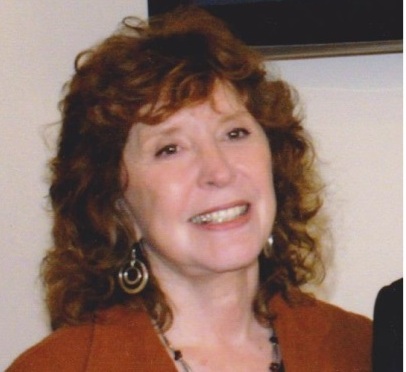 |
Improving clinical, administrative and educational practices in the field of substance use disorders. |
For 40 years, Joan Standora, Ph.D. has worked tirelessly to improve clinical, administrative, and educational practices in the substance use disorder field. Early in her career, Dr. Standora developed an expressive therapy program in a medication assisted treatment residential program and received a NIDA grant for a program serving mothers with substance use disorders and their children. In 1998, she became the first clinical director of New York City’s Manhattan Treatment Court. Dr. Standora established protocols and policies, supervised staff, and conducted outreach to providers for the drug court participants. Dr. Standora was instrumental in establishing the New York City Regional Drug Court/Treatment Consortium. Dr. Standora then became the Executive Clinical Director at a Bronx-based treatment program, instituting staff trainings focusing on substance use disorders among clients from low-income minority communities plagued by poor health care and unemployment. In 2000, Dr. Standora developed and implemented a substance use counselor education program at the City University of New York’s Kingsborough Community College. The program became a degree program in 2003, approved by both New York State’s Education Department and the Office of Alcoholism and Substance Abuse Services (OASAS). In 2010, Dr. Standora received a grant from the Department of Labor (DOL) through OASAS to retrain 25 unemployed workers as substance use counselors, a part of the Administration’s American Recovery and Reinvestment Act of 2009. In 2013, Dr. Standora received a grant to enroll persons over the age of 50 as a community college workforce education project for professionals in the substance use disorder field. She currently directs the degree program in chemical dependency counseling at the City University of New York.
Scott Strode
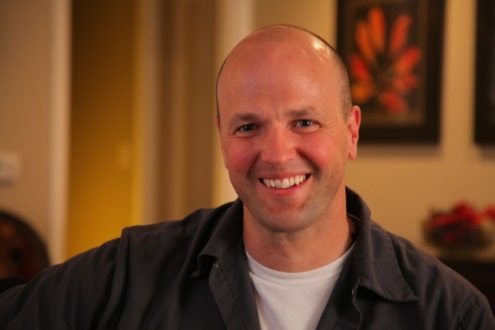 |
Helping individuals with substance use disorders find and maintain their recovery through sport. |
Scott Strode has dedicated his life to helping individuals with substance use disorders find and maintain their recovery through sport, a dedication that has earned the attention national media organizations, to include his recognition as a CNN Hero. Scott founded Phoenix Multisport in 2007 to foster a safe, supportive, physically active community for individuals recovering from alcohol and substance use disorders and for those who choose to live a sober life. Through pursuits such as climbing, hiking, running, strength training, yoga, road/mountain biking, CrossFit, and other activities, Phoenix seeks to help its members develop and maintain the emotional strength they need to stay sober. All activities are free. The only requirement is that individuals have at least 48 hours of continued sobriety to participate. They also must adhere to Phoenix Multisport’s code of conduct, which says that anything that is not nurturing is not welcome. Since 2007, over 11,000 individuals have attended Phoenix Multisport events in Colorado, where they find a safe, sober community of friends to help support them in their recovery. Scott is devoted to changing how the world views those with substance use disorders. By living sober and rising from the ashes of their substance use disorder, Scott believes that one’s life has new meaning and should be celebrated. Scott and the staff at Phoenix Multisport welcome newly-recovering individuals to join them for a free activity or workout. It is Scott’s hope that Phoenix Multisport will expand to other areas of the country to reach even more of those in need.
Melody Heaps and Pamela Rodriguez
 |
Advancing system-wide justice interventions for people with substance use disorders. |
Melody Heaps and Pamela Rodriguez are partners and leaders in advancing system-wide justice interventions for people with substance use disorders. For more than 30 years, they have shared a collective commitment to collaborative solutions that improve both public health and public safety.
Melody founded TASC in Chicago in 1976 as a nonprofit agency focused on alternatives to incarceration. She would go on to lead TASC to become a nationally recognized agency before she retired from her role as president and CEO in 2009. She remains president emeritus to TASC and is an advisor to TASC’s Center for Health and Justice, which offers public policy and consulting services nationally and internationally.
Melody began her career during the civil rights movement and served on Martin Luther King, Jr.’s staff during the Chicago campaign. From these roots grew a lifelong professional commitment to addressing the complex and interrelated issues of drugs, poverty, and crime. Under her leadership, TASC matured from a small pilot project in Cook County, Illinois to a statewide organization providing direct services for 25,000 individuals annually.
Pamela Rodriguez has served as TASC’s president and CEO since 2009, having previously directed every aspect of the agency’s operations. Under her leadership, TASC has continued to grow and thrive, including an expanded focus on diversion programs early in the justice continuum to reduce recidivism and the collateral consequences of justice involvement.
An expert in connecting research to clinical practice, Pam was appointed in 2007 to serve as a practitioner model of the Federal Coordinating Council on Juvenile Justice and Delinquency Prevention. She is active in numerous bodies to increase alternatives to incarceration, improve juvenile justice, and decrease the disproportionate incarceration of people of color.
Together, Melody and Pam have played significant roles at local, state, and national levels in the development and expansion of community-based diversion programs and treatment alternatives to incarceration to create healthier and safer communities.
Judge Robert Russell
 |
Pioneering the drug treatment court movement. |
In January of 2008, Judge Robert Russell created and began presiding over the first “Veterans Treatment Court” in the United States. The Veterans Treatment Court is a hybrid Drug Court/Mental Health Court model for justice-involved veterans that features regular court appearances (a bi-weekly minimum in the early phases of the program), mandatory attendance at treatment sessions, and frequent and random testing for substance use (drug and/or alcohol). The Veterans Treatment Court acts as a “one-stop shop” at the courthouse, with a team of Federal, state, and local veterans agencies and organizations working together to link veterans with the programs, benefits, and services they have earned. For his dedication and perseverance in helping this country’s veterans, The National Vietnam Veterans of America has awarded Judge Russell with the Vietnam Veterans of America Achievement Medal and The National Veterans of Foreign Wars of the United States has awarded Judge Russell with the James E. Dan Zandt Citizenship Award.
Judge Russell has been a pioneer in the drug treatment court movement and remains a strong leader to this day. In December 1995, Judge Russell created “Buffalo’s Drug Treatment Court” and continues to serve as the Presiding Judge. In addition, in December 2002, he established and began serving over Buffalo’s Mental Health Treatment Court.
Judge Russell is the Past Chairman of the Board of Directors of NADCP and the Past President of the New York State Association of Drug Treatment Court Professionals, Inc. He also serves on the National Advisory Board of the Judges’ Criminal Justice and Mental Health Leadership Initiative. He is the recipient of several Awards of Merit from the American Bar Association, New York State Bar Association, and the Erie County Bar Association.
Commander Harry Schmidt
 |
Strengthening international partnerships against transnational organized crime and illicit trafficking. |
CDR Harry Schmidt is being recognized as an Advocate for Action for his tireless work to strengthen international partnerships against transnational organized crime and illicit trafficking. CDR Schmidt led the expansion of the Multilateral Maritime Counterdrug Summit from eight to 17 partner nations in the Western Hemisphere transit zone, sharing operational and legal expertise to improve transnational cooperation and coordination in the apprehension and prosecution of major drug smugglers. The program has been so successful that the Department of State asked CDR Schmidt to replicate the Summit in the Caribbean Basin; the first of meeting was held in March 2014. CDR Schmidt also initiated and developed the concept for Coast Guard Support to Interdiction and Prosecution, an initiative through which three-person USCG teams will be embedded within select U.S. embassies in the Western Hemisphere transit zone. These teams will assist regional partners in case documentation, evidence handling, and prosecution of maritime drug smuggling cases. Through these and other ongoing efforts, CDR Schmidt is helping to strengthen international partnerships to reduce drug production, trafficking, use, and their consequences.
Dr. Kenneth Silverman
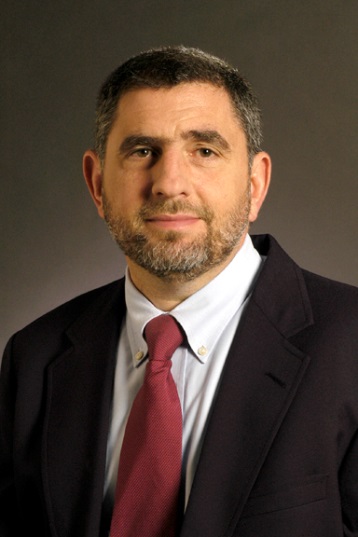 |
Advancing innovative intervention and treatment practices. |
Dr. Kenneth Silverman is a researcher and Professor of Psychiatry and Behavioral Sciences at Johns Hopkins University’s School of Medicine and is Director of the Bayview Medical Center’s Center for Learning and Health. Dr. Silverman’s research concerns the Therapeutic Workplace, an employment-based intervention for behavior change. Through the Therapeutic Workplace, unemployed adults living in poverty earn the opportunity to work and earn wages by meeting treatment goals. Goals may include abstinence verified through drug monitoring, as well as adherence to Vivitrol (injectable naltrexone), a medication to prevent narcotic relapse. Pay is contingent on attendance, work speed, and accuracy. Workplace participants are trained in data entry skills using a web-based computerized program that automates teaching and accelerates learning. Enrollees also learn professional demeanor. While Dr. Silverman’s approach is similar to other employee drug testing programs, patient recovery is the priority. If drug use occurs, every effort is made to keep the bond between employee and employer intact, so work can resume once abstinence is reestablished. Studies show incentives are among the most effective tools for initiating and sustaining abstinence, but they can be costly. Using wages from employment to pay for incentive interventions is a unique solution for treating people with chronic substance use disorders who may be at risk for relapse even after years of abstinence. In clinical trials, patients with long histories of unemployment and severe substance use disorders, including intravenous heroin and cocaine use, have been able to achieve long-term recovery through the Therapeutic Workplace.
Steve Talpins
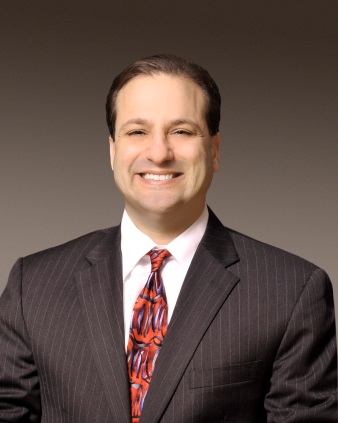 |
Identifying and promoting new strategies to reduce illegal drug use and its consequences. |
Stephen K. Talpins, an attorney with Rumberger, Kirk & Caldwell, is Vice President of the Institute for Behavior and Health (IBH), a non-profit organization devoted to identifying and promoting new strategies to reduce illegal drug use and its consequences. IBH was founded and is led by Dr. Robert L. DuPont, the first Director of NIDA and the second White House drug policy advisor.
Mr. Talpins is an innovator and recognized authority on the full range of drugged driving issues. For more than 20 years he has worked collaboratively with public, private, and non-profit stakeholders on drugged driving. In 1994, Mr. Talpins argued and won a precedent setting Frye hearing on the admissibility of Drug Recognition Expert (DRE) testimony and evidence, including the horizontal gaze nystagmus test. Since that time, Stephen has consulted with prosecutors around the country on issues involving the DRE protocol and field sobriety tests. In 2010-2011, Mr. Talpins drafted a model per se drugged driving law for IBH. The model law was designed to be adapted to the needs of any state and provided the basis for a bill filed in the Florida legislature. In 2012, NHTSA asked Mr. Talpins to identify ways to incorporate drugged driving into the established Administrative License Review (ALR) system. Mr. Talpins drafted a model provision that was presented to the Board of Directors of the Governors Highway Safety Administration. The model ALR drug law was well-received and, in August 2013, the Governors Highway Safety Administration adopted a resolution encouraging states to study the efficacy of an ALR system for drugged drivers. Steve’s legal work and advocacy have served as important contributions to the national effort to prevent drugged driving and its public health and safety consequences.
Dr. Steven Loyd
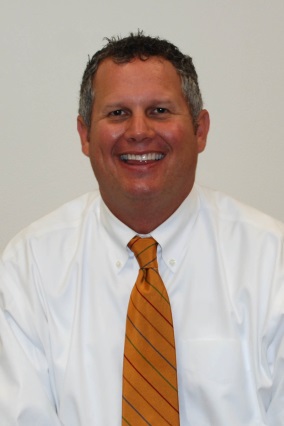 |
Preventing and addressing prescription drug abuse through prescriber education. |
Dr. Steven Lloyd is making a difference in the national effort to prevent and address prescription drug abuse through prescriber education. Dr. Loyd is an Internal Medicine physician and medical educator in Tennessee with expertise in proper prescribing of controlled substances and substance use disorders. He is in recovery from his own prescription opioid and benzodiazepine disorder and now regularly lectures and educates health care professionals, law enforcement, policymakers, and others on the dangers of prescription narcotics. He is the Associate Chief of Staff of Education at the Mountain Home VA Medical Center, has considerable expertise in neonatal addiction issues/neonatal abstinence syndrome (NAS), and is a vocal advocate for public health/public safety cooperation. He is charismatic, plain-spoken, and has a sense of humor in his lectures and presentations. A quote from a November 2012 article about him: "Will addiction ever go away? No way. There'll always be something. The key is to treat the underlying problems. We're not going to get a handle on this until we get a multi-pronged approach and erase the stigma associated with addictive disease."
